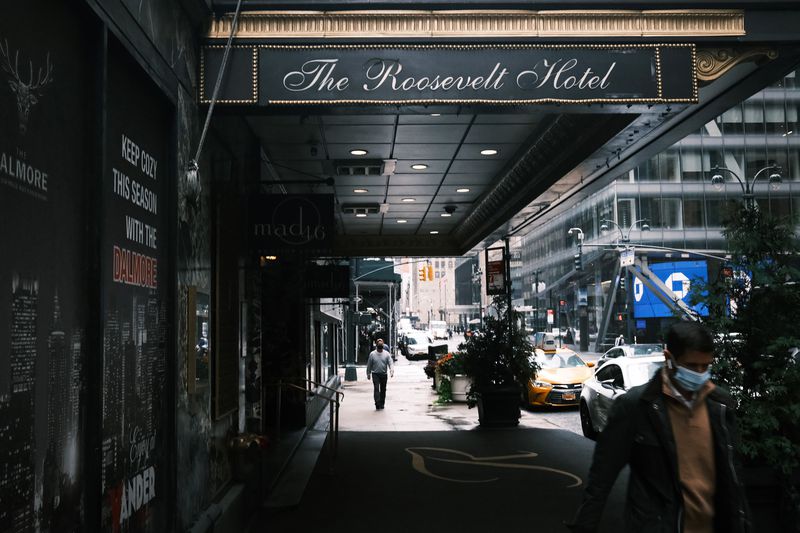New York Daily News: Actually, a NYC hotel special permit makes sense
By: Vijay Dandapani
July 14, 2021
At a time of unprecedented challenges facing the hotel industry in New York, we at the Hotel Association of New York City believe that the Department of City Planning proposal for a citywide hotel special permit stands out as a sober, thoughtful solution to properly rebuilding and preserving the world’s most vibrant hotel market. We urge the City Planning Commission and City Council to approve this proposed zoning amendment, as a means of ensuring the revival of New York City’s tourism sector.
New York’s hotels have been decimated by the COVID-19 pandemic. HANYC’s data indicates that over 200 of the city’s 700 hotels have closed, and job losses have been staggering, with only 10,000 hotel workers currently on the job.
These challenges only underline the need for smart rules regarding hotel development.
To be clear, we strongly supports ongoing hotel development in New York City. As tourism recovers, New York City will, in the future, need new hotels. We cannot, however, support the indiscriminate development that occurred since 2005 — an unprecedented development boom that saw the hotel market almost double in size from 74,000 in 2007 to 138,000-plus rooms in 2020. Many of these hotels, such as the wave of hotels developed in manufacturing zones, are out of context with the communities that they were built in, which was only resolved when the city implemented special permits in those areas.
Additionally, New York has the nation’s most robust development pipeline, with 150 hotels and 25,000-plus rooms slated to flood the market over the coming years. Oversupply has been the direct cause of consistent declines in revenue-per-available room, a key performance metric regarding the health of the hotel sector, since 2015. This massive supply problem, along with the fact that the pandemic has cratered the demand for hotel rooms, demonstrates that any future growth needs to be measured and thoughtful for the sake of the health of the city’s hotel industry.
We support well-planned, thoughtful development of hotels that fosters a synergy with the communities where they are built. We believe the special permit process will separate the good development proposals from bad, and that the hotels approved and developed as a result will serve the greater good of the industry and their neighboring communities.

The Roosevelt Hotel, one of New York’s oldest and most storied hotels, has announced that it will be closing due to a plunge in tourism as a result of the Covid-19 virus on October 13, 2020 in New York City.
This approach will also ensure that New York City’s visitors stay in quality, thoughtfully sited hotels, which are more likely to foster repeat visits to this wonderful city.
Some have argued that the implementation of special permits for hotels will completely freeze the development of hotels in New York City. As the leader of the hotel industry in New York City, I can say, without a doubt, that this is not the case. New York City is a leading global hub for media, finance, entertainment and tourism. There will always be a market for developing hotels in this city, so long as they are suitably located and adequately capitalized.
Some claim that no hotels have been developed in M1 manufacturing zones since the implementation of special permits in 2018.
First, it is pertinent to note that, given the lost year and a half to the COVID-19 pandemic, barely a year has gone by since that law was passed. Second, it is an irrational comparison that ignores some of the real reasons why hotel development has stalled in these manufacturing areas. Besides the fact that there was an overwhelming concentration of hotels developed in these zones resulting in few available sites, the M1 zones are typically located far from the city’s key tourist attractions. As a result, most are poorly suited for hotel use, leading to many of them being converted to non-traditional uses such as hourly room rentals and homeless housing soon after construction due to sub-par operational performance.
Another assertion has been that special permits will hinder the recovery of tourism post-pandemic. On the contrary. The central challenge faced by the city’s hotel industry during the pandemic recovery will be a lack of demand, not a lack of supply. Building more hotel rooms will not magically result in more hotel guests.
Lastly, the notion that special permits will make hotel rooms unaffordable to many tourists is unproven empirically either here or elsewhere. New York City’s hotel industry prides itself on its diverse selection of hotel offerings with price points for every traveler. Supply will always grow regardless of a special permit.
As we rebuild from the COVID-19 pandemic, it is more crucial than ever that we ensure that new hotel projects in New York City are executed by entities committed to quality and viability. Such an approach will optimize the long-term health and performance of the city’s tourism industry. The city must move forward with the citywide special permit.

